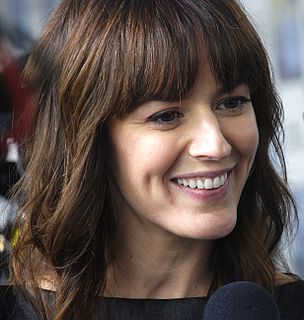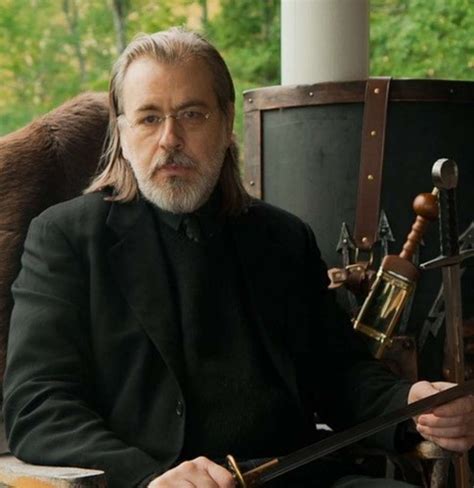A Quote by Erica Jong
There is still the feeling that women's writing is a lesser class of writing, that what goes on in the nursery or the bedroom is not as important as what goes on in the battlefield, that what women know about is a less category of knowledge.
Related Quotes
I started a writing class, not in service of writing a script or writing anything specific. I've just really been enjoying that, and oddly the group, not by design, but it just happened to be all women, and there were three women who gave birth this fall while we were all in class, and there's just something really great about getting to know these women through their stories and what they're writing about.
There was no real strategic decision about editorial tone. It was kind of a write whatever you want to write, and we'll see how it goes. I think that we lucked out in that all of the women who started writing at Feministing.com were really funny, and I don't think that's something people are used to seeing or hearing when they read feminism. You know, you think feminism and you kind of think academic, women's studies, dry, humorless; there are all of these stereotypes that go along with what feminist thought is and what feminist writing is.
Writing does produce a very unique satisfaction. There are times when I'm writing that it's frustrating or appalling or difficult, but when it goes well, it goes really well, and there is a feeling of rightness, like I'm doing the thing I was meant to do, almost in a mystical way, like I'm at an appropriate angle to the world.
Donald Trump attacked the woman reporter writing the story, called her "disgusting," as he has called a number of women during his campaign. Donald thinks belittling women makes him bigger. He goes after their dignity, their self-worth, and I don't think there is a woman anywhere who doesn't know what that feels like. So we know what Donald thinks and what he says and how he acts toward women. That's who Donald is.
Women are far more likely to follow orders to evacuate, especially women with children. At the same time, women were much more likely to die during the South Asian tsunami. In some villages it was 3 to 1. And that was party because of the average strength it takes to hold onto something. Also it was cultural; women were less likely to know how to swim, as were children. So much of this is based on how we develop our own survival skills before something goes wrong: Even if nothing goes wrong, it might be good to know how to swim.
When writing goes painfully, when it’s hideously difficult, and one feels real despair (ah, the despair, silly as it is, is real!)–then naturally one ought to continue with the work; it would be cowardly to retreat. But when writing goes smoothly–why then one certainly should keep on working, since it would be stupid to stop. Consequently one is always writing or should be writing.
What I find interesting and heartening, though, is that there does seem to be a shift in the subject matter being written about by women that is doing well in the culture. We're seeing more women writing dystopian fiction, more women writing novels set post-apocalyptic settings, subjects and themes that used to be dominated by men.
In her book 'Lean In: Women, Work, and the Will to Lead,' Sheryl Sandberg talks about the mentor/mentee relationship - and how it needs to be organic. She goes on to explain how important it is for men and women to step into mentoring roles. I would argue that not only is it important - but it's important far earlier than we think.
On the craft level, writing for children is not so different from writing for adults. You still have to have a story that moves forward. You still have to have the tools of the trade down. The difference arises in the knowledge of who you're writing for. This isn't necessary true of writing for adults.
I don't know of any science writing going on in women's magazines, unless you count medical stories about things like breast cancer. I still think there's a huge problem about how we can actively engage a wider range of women. I'm not saying women must be a separate audience - I'm just responding to the reality that the majority of people who do read science magazines are male. That's not a value judgment; it's a statistical fact.






































